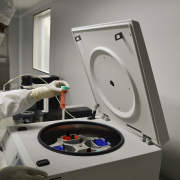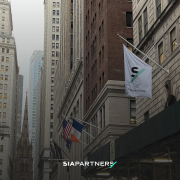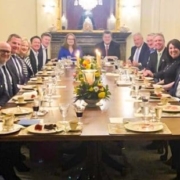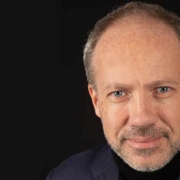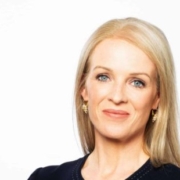Ecosystem of partners needed to deliver on Irish national targets
Market forces, new regulations and energy concerns are forcing companies to act, however, the transition is complex and will fail without a radical change in how public and private networks collaborate.
By Niall Cunneen, Associate Partner, Advisory, Sia Partners
In 2018 the Government introduced the National Planning Framework as part of project Ireland 2040 providing direction for investment priorities to support delivery of projects to further the ten National Strategic Outcomes (NSO’s). The revised NDP (2021-2030) pledges investment of €165bn, however, if we are to meet these objectives then organisations, both public and private have a pivotal role to play.
At Sia Partners LLP, we are seeing increased market activity around two of these objectives: sustainable mobility and the transition to a low carbon, climate resilient economy. Delivering on these two, will positively contribute to others such as housing development and rural rejuvenation with businesses seeking to optimise their real estate portfolio and enable hybrid work practices, which in turn gives employees the flexibility to choose where they live.
The increased regulatory targets at an EU and national level, and new mandatory ESG requirements are forcing companies to set and work towards sustainability goals. These regulations combined with rising energy costs and the fact that customers are rewarding sustainable businesses has forced enterprises to act.
To enable sustainable mobility and the transition to a low carbon, climate resilient economy, national infrastructure requires significant upgrade and scale to meet the demands of an increasing population.
To enable sustainable mobility and the transition to a low carbon, climate resilient economy, national infrastructure requires significant upgrade and scale to meet the demands of an increasing population. Vehicle electrification and migration to alternative fuels are a key consideration to reduce emissions. Public infrastructure providers have embarked on transition programs to cleaner energy sources, while private operators are deploying EV charging infrastructure in support of government targets to have over 900k electric cars on Irish roads by 2030. To manage the ramp up in demand, capacity on the network will need to be carefully balanced at a national level, in particular given increasing demand from industry. Much of this future demand is expected to be met from wind and solar energy as the power system is reshaped to be derived from renewable sources, though newer, cleaner gas-fired generation plants will be required, especially for when wind and solar generation is low.
A coherent approach with coordinated policy, incentives and investment will be required to achieve targets set. Meeting the objectives of the NDF will require a whole of economy approach. This undertaking should not be underestimated, and it will require every business to play its part to achieve the collective ambitions. If we are to meet both the NDF and sustainability targets by 2040, then everyone needs to be brought on that journey and collaborative co-create tangible solutions that will achieve greater value and outcomes than organisations currently do when working independently in silo.
Significant government investment needs to be committed to deliver outcomes. Private businesses need to look at their mission statement and strategies, assess their procurement practices, real estate portfolio and supplier network. They need to review their work practices, operating model, and ability to develop joint partnerships with government through the lens of helping to deliver these targets as a priority for 2040.
 About the author:
About the author:
Niall is a highly experienced strategy executive, having spent over twelve years in strategy consulting and over ten years in the telecoms industry. He has a track record of delivery in growth, operational improvement and business transformation, leveraging expertise in strategy, operations, commercial finance, and product delivery. Niall’s expertise in Strategy, both Corporate and Functional, has a strong emphasis on Business Model Transformation. He is experienced in Business Optimisation and establishing client-side business cases for significant transformations.
Commercially astute, he has strong influencing and interpersonal skills and is impactful at all levels of the organisation. He has worked across numerous industries including telecoms, retail, infrastructure, logistics, energy, financial services, life sciences, and support services, both in the UK and across Europe.


